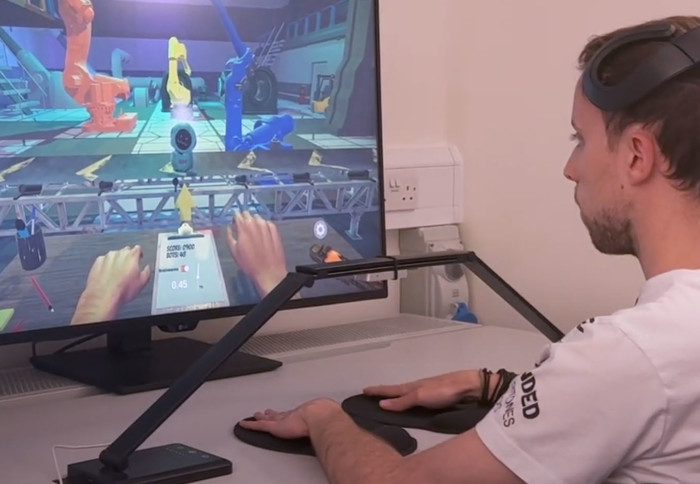New video from Imperial startup shows VR game controlled by thought

A new video by Imperial startup Cogitat shows a VR game-player controlling their virtual body using nothing more than the power of thought.
The video is the first time the company, launched last year, has publicly shared a demo of its brain-computer interface, which allows users to perform actions such as moving a VR (virtual reality) hand merely by mentally willing the hand to move.
The technology uses EEG headsets, which non-invasively measure electrical activity from the brain, in combination with advanced machine learning that is able to use EEG data to read intended bodily movements.
The video shows that the prize-winning technology, which is currently under commercial development for applications in entertainment and healthcare, works not only with the EEG headsets used for research but also consumer-grade headsets that are lower cost and easy to fit at home.
The version of the technology demoed in the video makes use of EEG brain wave data gathered through a study carried out by Imperial’s Department of Computing in partnership with Cogitat.
The MyBrainCommands experiment is continuing in London at Imperial’s South Kensington campus. Researchers are inviting members of the public or the Imperial community who are interested in contributing their own brain wave data to register their interest.
Article text (excluding photos or graphics) © Imperial College London.
Photos and graphics subject to third party copyright used with permission or © Imperial College London.
Reporter
David Silverman
Communications Division
